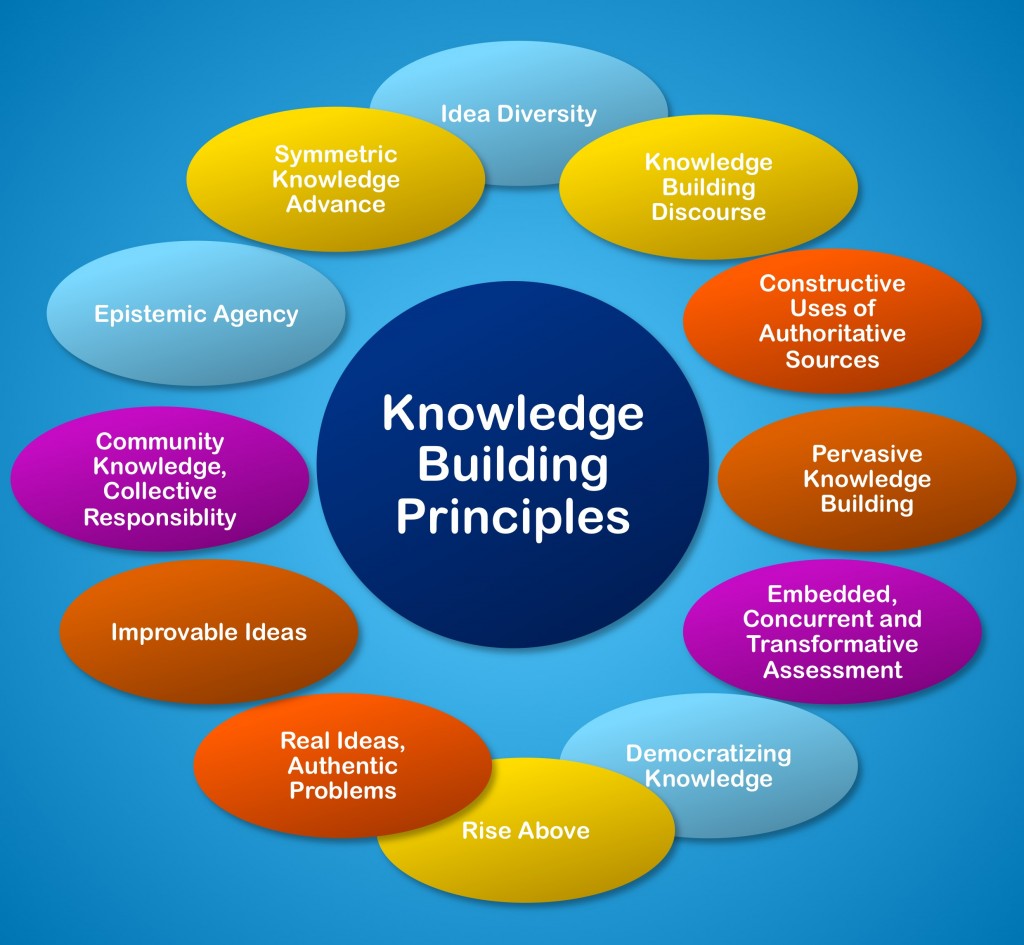
12 knowledge building (KB) principles
(extracted from Scardamalia, 2002)
Real Ideas, Authentic Problems
Knowledge problems arise from efforts to understand the world. Idea produced or appropriated are as real as things touched and felt.
Improvable Ideas
Participants work continuously to improve the quality, coherence, and utility of ideas For such work to prosper, the culture must be one that people feel safe in talking risks – revealing ignorance, voicing half-baked notions, giving and receiving criticism
Idea Diversity
To understand an idea is to understand the ideas that surround it, including those stand in contrast to it – creating a rich environment for ideas to evolve into new and more refined forms.
Epistemic Agency
Participants set forth their ideas and negotiate a fit between personal ideas and ideas of others, using contrasts to spark and sustain knowledge advancement rather than depending on others to chart that course for them They deal with problems of goals, motivation, evaluation, and long-range planning that are normally left to teachers or managers.
Community Knowledge, Collective Responsibility
Contributions to shared, top-level goals of the organization are prized rewarded as much as individual achievements. Team members produce ideas of value to others and share responsibility for the overall advancement of knowledge in the community.
Democratizing Knowledge
All participants are Legitimate contributors to the shared goals of the community. They diversity and divisional differences represented in any organization do not lead to separations along knowledge have/have not or innovator/non-innovator lines. All are empowers to engage in knowledge is to get knowledge.
Symmetric Knowledge Advance
Expertise is distributed within and between communities, Symmetry in knowledge advancement results from knowledge exchange and from the fact that is give knowledge is to get knowledge
Pervasive knowledge Building
Knowledge building is not confined to particular occasions or subjects but pervades mental life – in and out of school.
Constructive Uses Of Authoritative Sources:
To be in touch with the present state and growing edge of knowledge in the field. This requires respect and understanding of authoritative sources, combined with a critical stance toward them.
Knowledge Building Discourse:
The Knowledge itself is refined and transformed through the discursive practices of the community – practices that have the advancement of knowledge as their explicit goal.
Embedded, Concurrent and Transformative Assessment:
Assessment is part of the effort to advance knowledge – it is used to identify problems as the work proceeds and tis embedded in the day-to-day workings of the organization. The community engages in its own internal assessment.
Rise Above:
Creative knowledge building entails higher-level formulations of problems, working with diversity, complexity and messiness… out of hat achieve new syntheses. By moving to higher planes of understanding knowledge builders transcend trivialities and oversimplifications and move beyond current best practices.
Reference:
Scardamalia, M. (2002). Collective cognitive responsibility for the advancement of knowledge. In B. Smith (Eds.), Liberal education in a knowledge society (pp. 76-98). Chicago: Open Court.